Zarif commemorates Srebrenica massacre victims, renews Iran’s support for Bosnia
Iran’s foreign minister has marked the 26th anniversary of the Srebrenica massacre, saying the Islamic Republic of Iran is proud to have stood by the oppressed people of Bosnia and Herzegovina since their independence.
In a letter read out at the commemoration of the anniversary of the genocide on Sunday, Mohammad Javad Zarif paid tribute to those killed in the horrific crime and condoled with the government and people of Bosnia and Herzegovina, especially the bereaved.
The events of July 1995 are one of the darkest chapters in the contemporary history of mankind, Zarif said, stressing that while the event should not be a source of hatred among different ethnicities, it should not be forgotten either.
He maintained that the Sunday event reminds the international community of the need for a commitment to justice, non-violence and a sense of responsibility in defending the oppressed.
It also urges the international community, particularly those claiming to uphold human rights, to adhere to genuine human values, the Iranian chief diplomat stated.
Thousands of people in Bosnia and Herzegovina gathered on Sunday to mark the 1995 execution of more than 8,000 Muslim Bosniaks, also known as the Srebrenica massacre, which is Europe’s only acknowledged genocide since World War II.
They also held the reburial of 19 victims, including 16 men, two teenage boys and a woman, whose remains were found in mass graves and were recently identified through DNA analysis.
Newly identified victims are given a dignified burial each year on July 11 – the anniversary of the day the killing began in 1995.
“As soon as I got up and had coffee, I came to visit the graves of my husband and his brother, to say a prayer,” said Kadefa Rizvanovic, who lost 20 male relatives in the slaughter and still has not found the remains of all of them.
“My paternal and maternal uncles are also buried here. I said a prayer for them and for all the victims of Srebrenica,” she added, according to the Associated Press.
On July 11, 1995, Srebrenica fell to Bosnian Serb forces led by General Ratko Mladic.
Srebrenica’s Muslim population fled the town, which had been declared a UN “safe haven” for civilians, and rushed to the UN compound where its peacekeepers were supposed to protect them.
The Dutch peacekeepers, however, handed over the base to Serbian troops, who separated out men and boys for execution and sent the women and girls elsewhere to a territory under their control.
In less than two weeks, the Serbian forces systematically murdered more than 8,000 Bosnian men and boys and dumped their bodies in numerous mass graves in an attempt to hide their crime.
In a tweet last year on the 25th anniversary of the genocide, Zarif censured Europe and the United Nations’ inaction to prevent the massacre.
“25 yrs ago today, #SrebrenicaGenocide began as Europe failed to uphold its basic duties. Quarter of a century later Europe is plagued by same ineptitude,” he wrote.
“The failure of the @UN to take any action at the time—to forever haunt the world body—should remain a lesson for the present.”
VIDEO | Yemen; a bone in Israeli neck
D-8’s role in Iran’s economy after Cairo summit
China slams US as ‘war-addicted’ threat to global security
China ‘firmly opposes’ US military aid to Taiwan
VIDEO | Press TV's News Headlines
President Yoon Suk Yeol to be removed from office
At least 19 Gazans killed by Israeli airstrikes since dawn: Medics
Leader: Iran neither has nor needs proxy forces


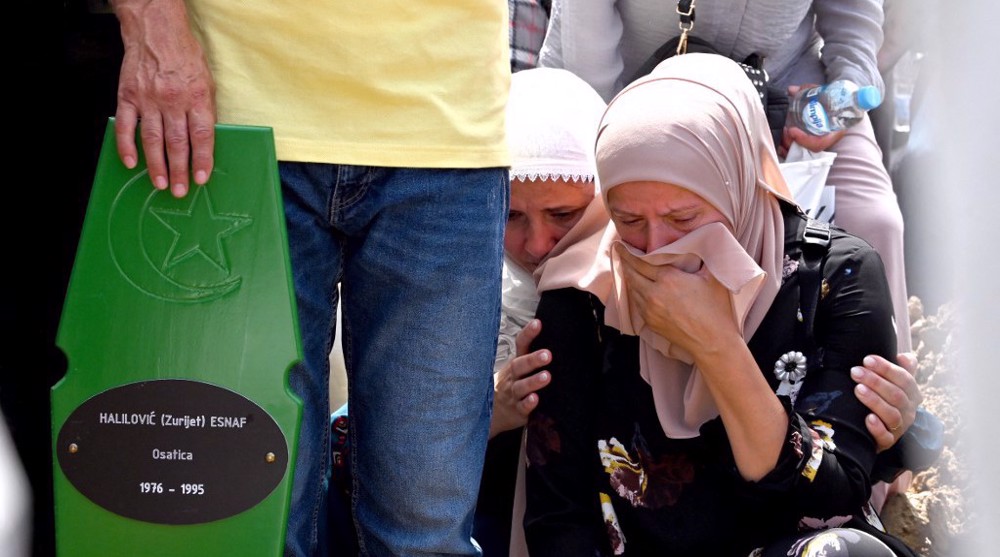
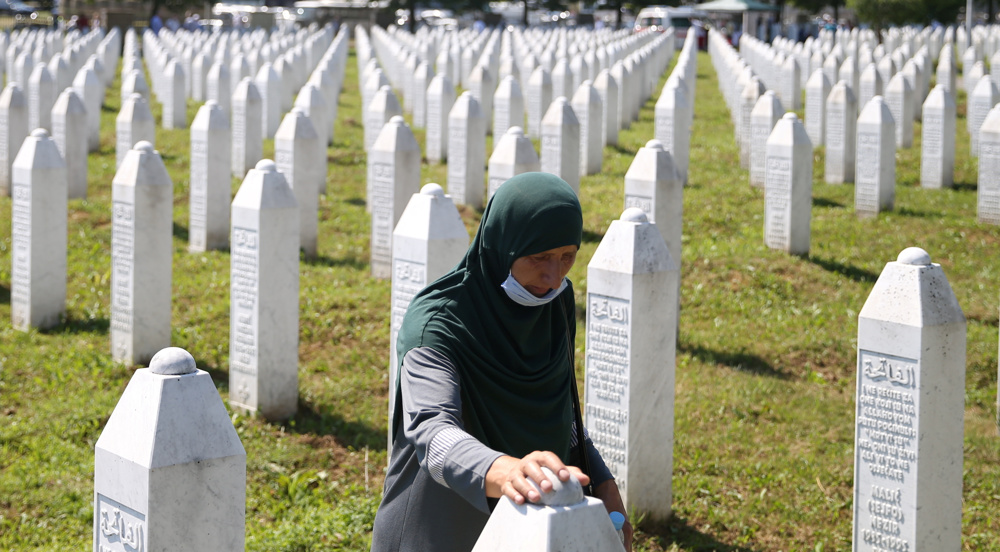
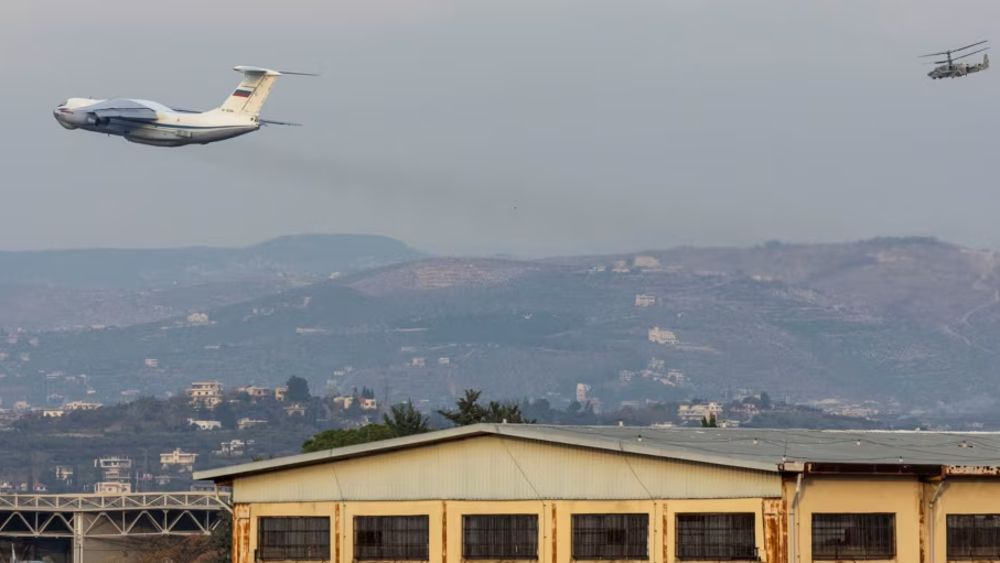
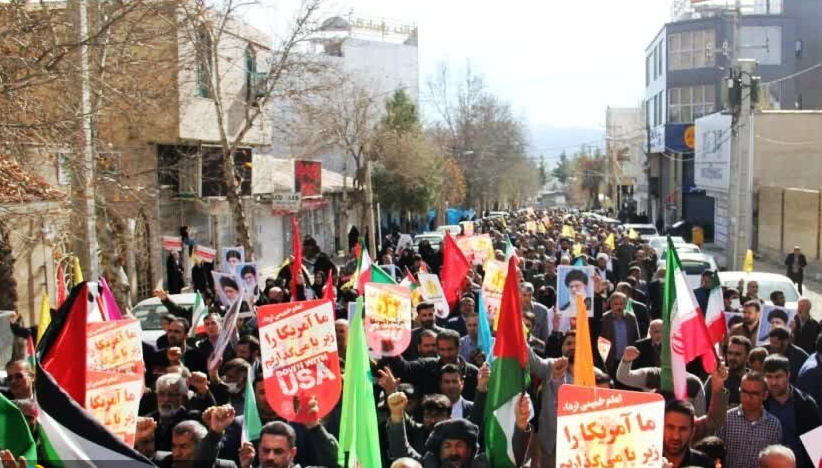




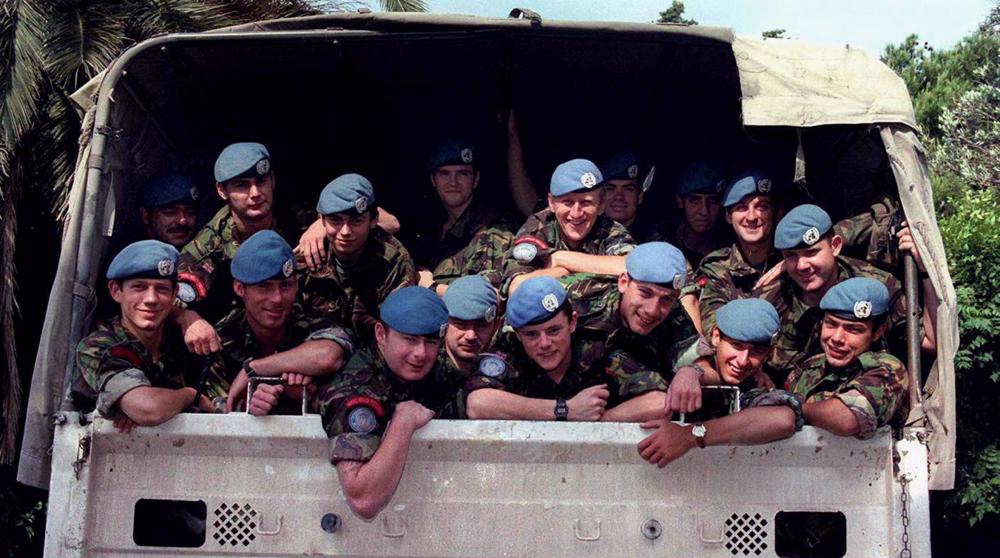

 This makes it easy to access the Press TV website
This makes it easy to access the Press TV website